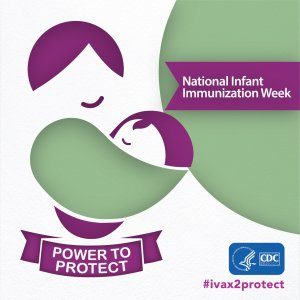 Getting vaccinated should be a simple and straightforward process. There are clear procedures that vaccine administrators can (and should) follow when providing immunizations, and following these procedures can greatly reduce the risk of vaccine-related injuries. Vaccine administrators also can (and should) take steps to help reduce vaccination anxiety for both children and adults when necessary. Yet, many people still have a negative immunization experience, and some find themselves in need of an experienced vaccine injury attorney. Continue reading
Getting vaccinated should be a simple and straightforward process. There are clear procedures that vaccine administrators can (and should) follow when providing immunizations, and following these procedures can greatly reduce the risk of vaccine-related injuries. Vaccine administrators also can (and should) take steps to help reduce vaccination anxiety for both children and adults when necessary. Yet, many people still have a negative immunization experience, and some find themselves in need of an experienced vaccine injury attorney. Continue reading
Tag Archives: National Vaccine Injury Compensation Program
10 Ways to Improve Your Chances of Recovering Vaccine Injury Compensation
 The National Vaccine Injury Compensation Program (VICP) provides a source of financial recovery for individuals and families affected by vaccine injuries. While the VICP is a federal government program, filing a successful VICP claim is unlike filing for benefits under more well-known programs like Social Security, Medicare and Medicaid. When filing a VICP claim, you must be able to prove your right to compensation and how much you are entitled to recover—and this makes it important to have an experienced vaccine injury attorney on your side. Continue reading
The National Vaccine Injury Compensation Program (VICP) provides a source of financial recovery for individuals and families affected by vaccine injuries. While the VICP is a federal government program, filing a successful VICP claim is unlike filing for benefits under more well-known programs like Social Security, Medicare and Medicaid. When filing a VICP claim, you must be able to prove your right to compensation and how much you are entitled to recover—and this makes it important to have an experienced vaccine injury attorney on your side. Continue reading
Can You Get Complex Regional Pain Syndrome from a Flu Shot?
 Complex regional pain syndrome (CRPS) is a debilitating nerve condition that can impact all aspects of a person’s life. The symptoms of CRPS can last anywhere from months to years, and they can be permanent in some cases. Complex regional pain syndrome can have a variety of triggers, and, as the Mayo Clinic notes, “its cause isn’t clearly understood.” However, medical researchers have identified several cases of CRPS linked to the annual flu shot. Continue reading
Complex regional pain syndrome (CRPS) is a debilitating nerve condition that can impact all aspects of a person’s life. The symptoms of CRPS can last anywhere from months to years, and they can be permanent in some cases. Complex regional pain syndrome can have a variety of triggers, and, as the Mayo Clinic notes, “its cause isn’t clearly understood.” However, medical researchers have identified several cases of CRPS linked to the annual flu shot. Continue reading
What to Know if You’ve Been Diagnosed with Polymyalgia Rheumatica Following a Vaccination
 Polymyalgia rheumatica is an inflammatory disease that has been linked to several CDC-recommended vaccines. While the specific reason why these vaccines cause polymyalgia rheumatica remains unknown, the link has been recognized in claims filed under the National Vaccine Injury Compensation Program (VICP). Continue reading
Polymyalgia rheumatica is an inflammatory disease that has been linked to several CDC-recommended vaccines. While the specific reason why these vaccines cause polymyalgia rheumatica remains unknown, the link has been recognized in claims filed under the National Vaccine Injury Compensation Program (VICP). Continue reading
2022 Year-End Data for Vaccine Injury Claims Under the VICP
 Each year, the U.S. Health Resources & Services Administration (HRSA) publishes annual statistics on claims filed under the National Vaccine Injury Compensation Program (VICP). The VICP is a federal program that pays financial compensation to eligible claimants who are coping with the effects of vaccine-related injuries and illnesses. Here, vaccine injury lawyer Leah V. Durant highlights some of the key figures from the HRSA’s 2022 year-end data for vaccine injury claims under the VICP: Continue reading
Each year, the U.S. Health Resources & Services Administration (HRSA) publishes annual statistics on claims filed under the National Vaccine Injury Compensation Program (VICP). The VICP is a federal program that pays financial compensation to eligible claimants who are coping with the effects of vaccine-related injuries and illnesses. Here, vaccine injury lawyer Leah V. Durant highlights some of the key figures from the HRSA’s 2022 year-end data for vaccine injury claims under the VICP: Continue reading
How Is a Flu Vaccine Injury Diagnosed?
 Injuries from the flu shot are the most common type of vaccine-related injury. Of course, this is due in large part to the fact that the flu shot is the most common vaccine administered in the United States. Each year, around half of the U.S. population gets a flu shot, and a small percentage of flu shot recipients experience a flu vaccine injury. Continue reading
Injuries from the flu shot are the most common type of vaccine-related injury. Of course, this is due in large part to the fact that the flu shot is the most common vaccine administered in the United States. Each year, around half of the U.S. population gets a flu shot, and a small percentage of flu shot recipients experience a flu vaccine injury. Continue reading
Why Do You Need a Flu Shot Each Year? (and Answers to More Common Questions about the Flu Vaccine)
 Have you ever wondered why you need a flu shot each year? Are you wondering whether it is safe for you (or your child) to get a flu shot because of a recent diagnosis? Are you curious about how effective the flu shot really is at preventing influenza? If so, you are not alone. The U.S. Centers for Disease Control and Prevention (CDC) has recently released an online publication that answers several common questions about the annual flu shot. Continue reading
Have you ever wondered why you need a flu shot each year? Are you wondering whether it is safe for you (or your child) to get a flu shot because of a recent diagnosis? Are you curious about how effective the flu shot really is at preventing influenza? If so, you are not alone. The U.S. Centers for Disease Control and Prevention (CDC) has recently released an online publication that answers several common questions about the annual flu shot. Continue reading
Which Vaccines Can Cause SIRVA?
 Shoulder injuries related to vaccine administration (SIRVA) are painful, debilitating and potentially long-term injuries that can lead to substantial medical bills and other financial and non-financial costs. They are among the most common types of vaccine injuries, and each year we help dozens of individuals obtain compensation for SIRVA under the National Vaccine Injury Compensation Program (VICP). Continue reading
Shoulder injuries related to vaccine administration (SIRVA) are painful, debilitating and potentially long-term injuries that can lead to substantial medical bills and other financial and non-financial costs. They are among the most common types of vaccine injuries, and each year we help dozens of individuals obtain compensation for SIRVA under the National Vaccine Injury Compensation Program (VICP). Continue reading
Who Is At Risk for Vaccine-Related Complications?
 Although the CDC’s recommended vaccines are considered generally safe for most people, some individuals are at greater risk than others for experiencing vaccine-related complications. Understanding your risk level (or your child’s risk level) is important so that you can make informed decisions about whether—and when—to get vaccinated. While the risks of getting vaccinated can outweigh the benefits for some people, it is also important not to avoid immunization based on misguided assumptions. Here is some important information from the CDC’s Advisory Committee on Immunization Practices (ACIP): Continue reading
Although the CDC’s recommended vaccines are considered generally safe for most people, some individuals are at greater risk than others for experiencing vaccine-related complications. Understanding your risk level (or your child’s risk level) is important so that you can make informed decisions about whether—and when—to get vaccinated. While the risks of getting vaccinated can outweigh the benefits for some people, it is also important not to avoid immunization based on misguided assumptions. Here is some important information from the CDC’s Advisory Committee on Immunization Practices (ACIP): Continue reading
Resources from National Infant Immunization Week 2022 Still Available from the CDC
 Each Spring, the U.S. Centers for Disease Control and Prevention (CDC) recognizes National Infant Immunization Week (NIIW) to shine a spotlight on “the importance of protecting children two years and younger from vaccine-preventable diseases (VPDs).” For 2022, the CDC placed particular emphasis on promoting timely vaccinations, noting “a troubling drop in routine childhood vaccination as a result of families staying at home” during the COVID-19 pandemic. Resources from NIIW 2022 are still available online. Here, vaccine attorney Leah V. Durant shares some of the highlights: Continue reading
Each Spring, the U.S. Centers for Disease Control and Prevention (CDC) recognizes National Infant Immunization Week (NIIW) to shine a spotlight on “the importance of protecting children two years and younger from vaccine-preventable diseases (VPDs).” For 2022, the CDC placed particular emphasis on promoting timely vaccinations, noting “a troubling drop in routine childhood vaccination as a result of families staying at home” during the COVID-19 pandemic. Resources from NIIW 2022 are still available online. Here, vaccine attorney Leah V. Durant shares some of the highlights: Continue reading
